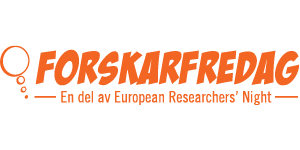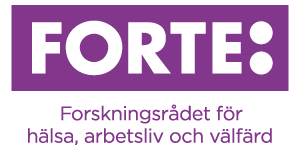Using illusions and magic, Matthew Tompkins from Lund University amazed the audience with his presentation to win the national final of the Swedish Researchers’ Grand Prix. The final of the contest, in which researchers present their research in just four minutes, was held on 1 December in Stockholm.
“I am very happy to get the chance to talk about my research field. It’s about how our mind work and influence our perceptions, and how that can have consequences in real life, for example in how eyewitnesses perceive a situation,” explained Matthew Tompkins, a postdoctoral researcher in cognitive science at Lund University.
The audience got to test their own memory, was tricked by a disappearing t-shirt and learned more about how research on people’s minds is carried out.
“Part of a researcher’s responsibility is communicating their research, so it was a privilege to participate in the competition,” said Matthew Tompkins, who uses experimental psychology to better understand our senses.
Being able to present your research in an understandable and engaging way is a big challenge for most researchers. But in the Researchers’ Grand Prix, this is done on stage in front of a large audience and expert jury, who together decide the winner.
Presenting your research in this way should be part of a researcher’s education, because it can be of benefit both in teaching and for all types of presentations
“Presenting your research in this way should be part of a researcher’s education, because it can be of benefit both in teaching and for all types of presentations,” said Matti Sällberg, a Professor at Karolinska Institutet, who sat on the expert jury, along with comedian and presenter, Karin Adelsköld, and Amina Manzoor, medical reporter at Expressen.
Second prize went to Tomas Rosén, a materials scientist at KTH Royal Institute of Technology, who researches cellulose nanofibrils. They can be used to create new materials to replace plastic, and are made from nature’s own building blocks. Third prize went to Erika Baraldi, who does research in special education at Stockholm University, on how to support families with extremely premature babies.
“Explaining research that has taken years of hard work in a brief and easy-to-understand way is a difficult task, but necessary if the research is to be of benefit and contribute to creating a more sustainable society. The Researchers’ Grand Prix gives researchers an opportunity to gain practical experience in explaining their research to new audiences,” said Fredrik Hörstedt, Head of International Cooperation at Vinnova, who presented the trophy to the winner.
Around 320 people came to watch the final in person at Nalen concert hall in Stockholm, which was compèred by Josefin Johansson, a presenter, comedian and actress. The event was also broadcast live online. Four of the finalists had qualified via regional heats in Eskilstuna, Helsingborg, Luleå and Stockholm during the ForskarFredag science festival held as part of European Researchers’ Night. Two others gained places in the final through an online heat (Researchers’ Grand Prix Digital) open to researchers anywhere in the country. All received individual coaching in presentation techniques.
The Researchers’ Grand Prix is Sweden’s largest science communication competition for researchers. The contest has been run since 2012 by the non-profit organisation VA (Public & Science) together with the research councils Formas, Forte, Vinnova and the Swedish Research Council.
Contact:
Julia Brink, Project Manager, Researchers’ Grand Prix, VA (Public & Science) [email protected], +46 (0)73 705 73 21.
Press photos are available here.





